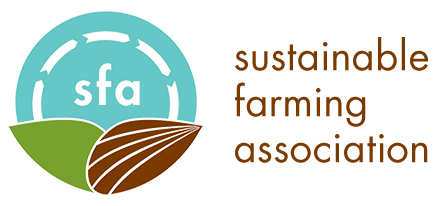Dirt Rich: The Potential of Perennial Crops & Kernza
 “I’m so heartened by the work that our farmers are doing, that our researchers are doing, to create these really sustainable crops–they’re actually regenerative crops–that are not only delicious on the plate, but really good for the land.” Beth Dooley shares the excitement for Minnesota perennial crops and Kernza that she, Jacob Jungers, and Peter and Anne Schwagerl all bring to this episode of Dirt Rich.
“I’m so heartened by the work that our farmers are doing, that our researchers are doing, to create these really sustainable crops–they’re actually regenerative crops–that are not only delicious on the plate, but really good for the land.” Beth Dooley shares the excitement for Minnesota perennial crops and Kernza that she, Jacob Jungers, and Peter and Anne Schwagerl all bring to this episode of Dirt Rich.
Research by a variety of stakeholders has been focused on the economic and environmental impacts of perennials like alfalfa, hazelnuts, pennycress, and the intermediate wheatgrass Kernza®. They’ve found that fewer pesticides, herbicides, and fertilizers are needed to grow perennial crops, and farmers such as Anne and Peter Schwagerl reap the benefits.
The two SFA Western Chapter members have 40 acres of Kernza seeded on their organic farm this season. Says Peter, “it also offers a good way for us to tackle some of the very nitty gritty challenges that we face on a farm, particularly us as organic farmers. It really feeds a lot of needs for us from an agronomic standpoint.” They’re able to keep living roots in the soil, reduce tillage, improve pest and weed management, and break up soil compaction.
The Schwagerls intend to eventually incorporate that fifth principle of soil health, Integrating Livestock, and graze the forage that Kernza provides as well. As Jacob Jungers explains, grazing Kernza results in four potential income streams for the crop: grazing forage in early May, harvesting the grain, using the leftover straw for bedding or rations, and grazing again in the late fall.
You can listen to Dirt Rich anywhere you get your podcasts, including Spotify, Apple Podcasts, Stitcher, Podbean. You can also listen on the SFA website. Do you have ideas for future episodes? Comments? Drop us a line.
Additionally, Kernza® CAP has announced several field days for July and August. Visit here for more information.
